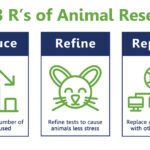Animal cruelty remains a pervasive and contentious issue in contemporary society, eliciting passionate responses from advocates and opponents alike. This raises an urgent question: should animal cruelty be classified as a federal crime? The complexity surrounding this topic invites a multifaceted exploration of legal frameworks, social implications, and ethical considerations.
To comprehend the necessity of federal legislation, it is imperative to first delineate the various forms of animal cruelty. Animal cruelty can manifest in numerous ways, ranging from neglect and abandonment to deliberate acts of violence. Some cases involve the horrific abuse of household pets, while others pertain to the egregious treatment of farm animals in the agricultural sector. Additionally, the involvement of organized crime in activities such as dog fighting and illegal breeding operations casts a shadow over societal norms regarding animal welfare.
Additionally, the existing state laws providing varied levels of protection for animals pose a salient argument for federal intervention. Currently, the United States lacks a cohesive national standard; laws differ significantly from one state to another. This disparity can lead to lenient punishments in some jurisdictions while harsher penalties exist elsewhere. The inconsistency is troubling—and potentially allows for the perpetuation of animal cruelty in states with fewer protections. Federal legislation could establish a uniform baseline of rights for animals, ensuring that all creatures receive consistent legal protections, irrespective of geographic location.
Moreover, the ramifications of deeming animal cruelty a federal crime resonate beyond the immediate context of animal welfare. The psychological and societal implications of animal abuse may contribute to a broader understanding of criminal behavior. Research suggests a correlation between animal cruelty and subsequent violence toward humans. The Animal Welfare Act (AWA), a federal law that governs the treatment of animals, has made strides in this area, but it is limited in scope. By elevating animal cruelty to federal status, law enforcement agencies could tackle the issue with greater resources and heightened authority, potentially mitigating the risk of future violent acts.
Critics of this proposition often argue that a federal categorization of animal cruelty could lead to overreach and unnecessary intrusion into private lives. There is a legitimate concern regarding the enforcement of such laws, as some individuals may view them as unjustly punitive. However, these perspectives often overlook the rigorous legal standards typically required in criminal proceedings. A sound framework can be established to differentiate between essential and malevolent behaviors, ensuring that the enforcement of animal cruelty laws does not infringe upon legitimate activities such as farming or wildlife management.
Furthermore, the economic impact of animal cruelty is notable in this discourse. The United States economy suffers losses as a result of animal mistreatment, particularly in sectors such as agriculture and tourism. Poor animal welfare standards can diminish the quality of products, resulting in decreased consumer trust and sustainability issues. Furthermore, marginalized communities often bear the brunt of the consequences, as regions with higher incidences of animal abuse may also struggle with myriad social challenges. Federal legislation could thereby foster a more ethical marketplace, promoting responsible business practices and cultivating a conscientious consumer base.
Examining global precedents can also provide insight into the viability of adopting similar measures in the United States. Countries like Canada and several European states have instituted national animal welfare laws that categorize severe forms of cruelty as federal offenses. These jurisdictions demonstrate that it is possible to harmonize legal definitions and protections for animals without sacrificing civil liberties. Drawing inspiration from these models could inform a balanced approach toward federal animal welfare legislation in the U.S.
With advances in technology and increasing access to information, public sentiment around animal welfare continues to evolve. Social media platforms have amplified awareness of animal cruelty incidents, galvanizing grassroots activism and pushing for reforms. The public is more informed than ever, advocating for ethical treatment of animals across various spheres, from entertainment to food production. Although the road to enacting federal legislation may be fraught with complications, the rising tide of advocacy indicates a shifting paradigm that favors comprehensive reform.
As we contemplate the question of whether animal cruelty should be considered a federal crime, it is vital to approach the issue with a balanced perspective. Engaging with the full spectrum of ethical, societal, and legal implications allows for a holistic understanding of what this change could entail. Elevating animal cruelty to the federal level could provide numerous benefits, including standardization of laws, enhanced societal protection, and a foundational shift in the way we view the responsibilities humans hold toward other sentient beings.
Ultimately, the conversation surrounding animal cruelty and potential federal legislation is not merely a matter of legality but rather an embodiment of our collective values as a society. In a world increasingly characterized by a commitment to compassion and sustainability, it becomes apparent that protecting the most vulnerable among us—animals—should be a priority. The establishment of federal crime status for animal cruelty may ultimately articulate a firm societal stance on empathy, ethical treatment, and non-violence, laying the groundwork for a more humane future.






